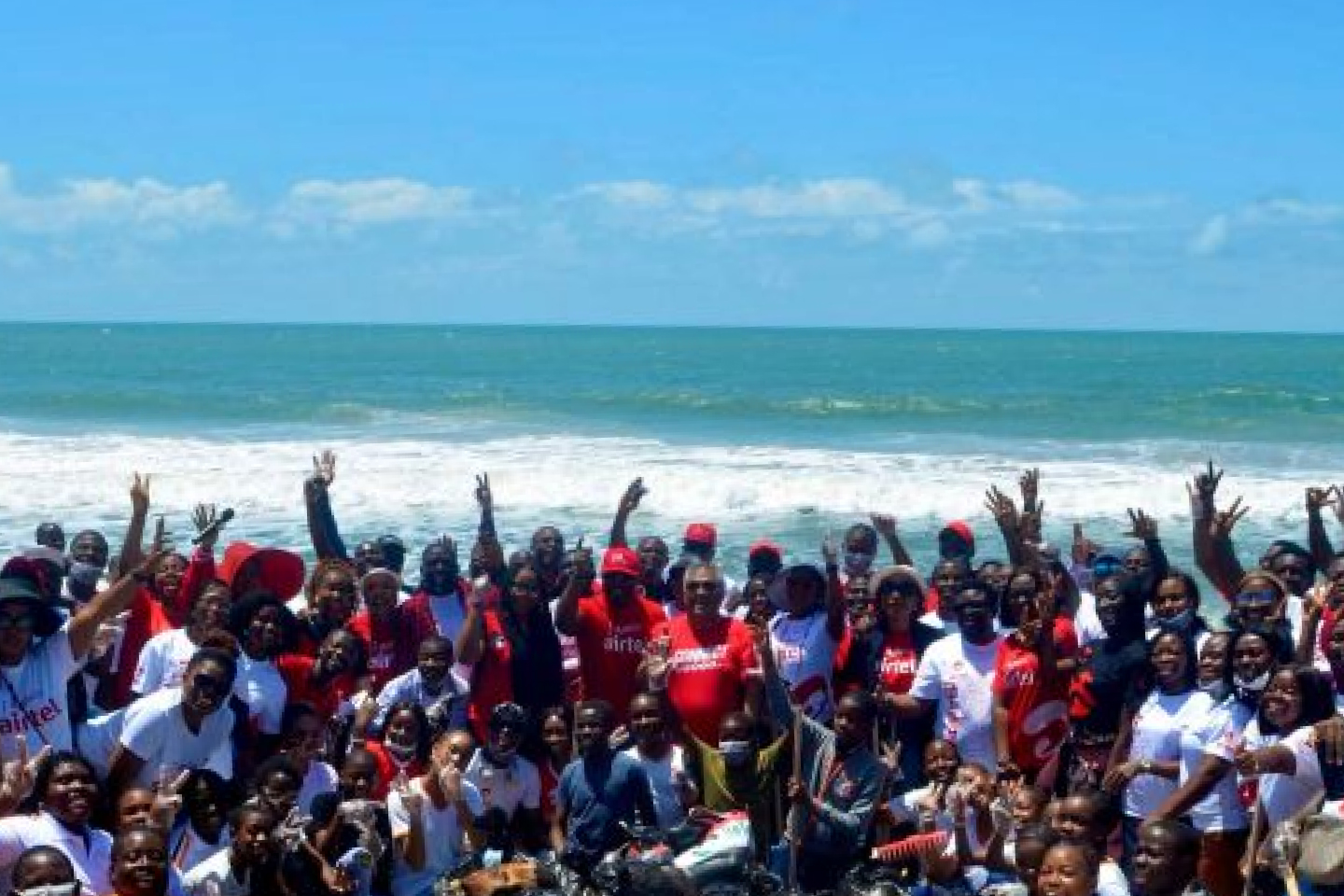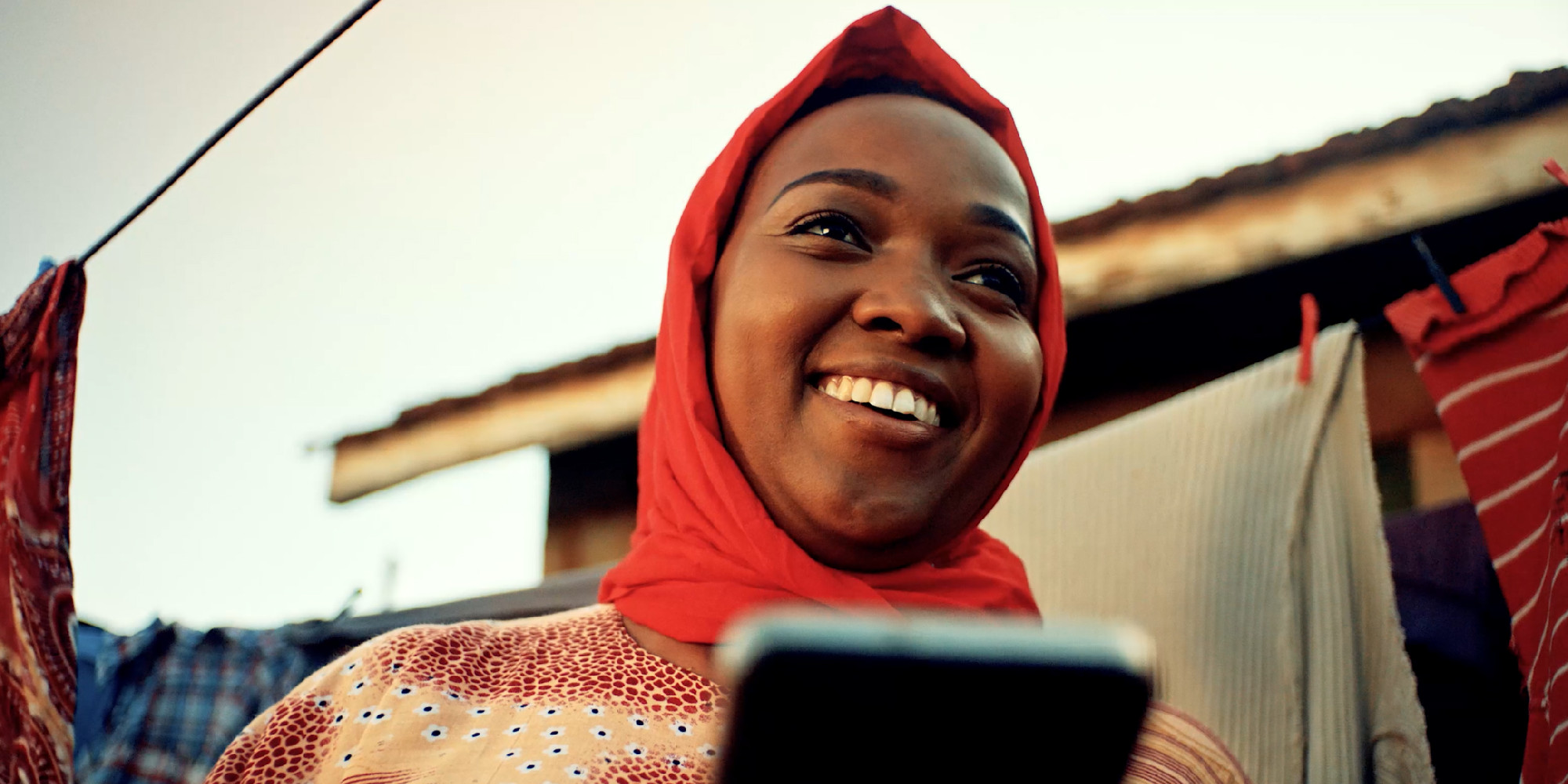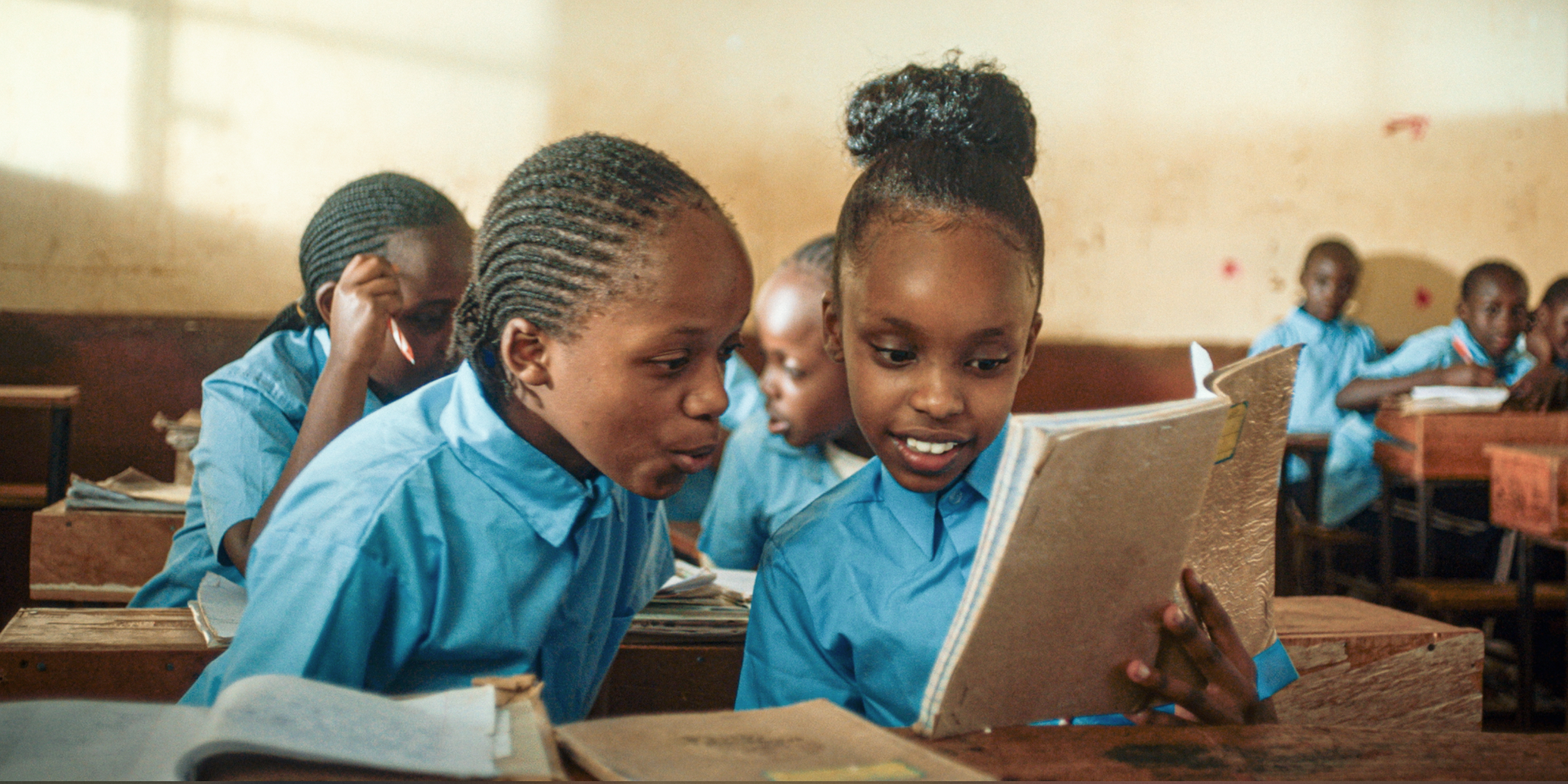Water and waste management is a material topic
Environmental stewardship
At Airtel Africa, we are committed to reducing waste, conserving natural resources, and integrating sustainable practices across all our operations.
Through targeted initiatives, we’re working to eliminate hazardous waste, minimise non-hazardous waste, and reduce our water consumption. Our environmental and social management system (ESMS) helps us track our progress and ensures compliance with international best practices.
Our focus areas
Elimination of hazardous waste from our operations
Airtel Africa continues to eliminate hazardous waste, particularly lead from batteries, by adhering to stringent disposal regulations and partnering with suppliers and accredited disposal firms.
Reduction in non-hazardous waste
We remain committed to the reuse and recycling of non-hazardous waste throughout our operations. Our strategy encompasses expanding our waste management schemes and increasing our procurement of reusable and recyclable materials.
Protection of natural resources
We do not consume or pollute significant amounts of water through our operations. Our proactive water conservation programmes include rainwater harvesting and water-saving practices, underscoring our commitment to safeguarding natural resources.
GRI framework
GRI 306-4 Waste diverted from disposal
GRI 306-5 Waste directed to disposal
GRI 301-2 Recycled input materials used
GRI 303-3 Water withdrawal
GRI 303-4 Water discharge
GRI 303-5 Water consumption
1
Our commitment to environmental stewardship is an integral part of our sustainability journey. Through responsible waste management, energy efficiency and conservation initiatives, we continue to minimise our environmental footprint while supporting sustainable development.
2
Ramakrishna Lella
Chief supply chain officer
Our approach to managing environmental stewardship
Through ESMS, we monitor waste disposal, track resource use and assess environmental risks. We also work closely with suppliers and vendors to ensure they adhere to our environmental and social performance standards. Our procurement contracts include e-waste management clauses to promote responsible recycling and disposal of network equipment.
Governance
Environmental stewardship is managed by supply chain, network and sustainability functions, with oversight from senior leadership at both Group and OpCo levels. Our governance structure includes:
- Supply chain and procurement teams ensure responsible sourcing, hazardous waste management and vendor compliance with environmental standards
- Network and technology teams implement energy efficiency measures and phase out hazardous materials in operations
- Sustainability and compliance teams oversee implementation of the ESMS, monitor environmental KPIs and ensure alignment with international standards
- Operational teams in our OpCos manage waste separation, recycling initiatives and awareness campaigns within our offices and retail outlets.
Regular audits and compliance checks help ensure that our environmental policy is effectively implemented across all 14 OpCos.
Key performance indicators (KPIs)
963.0
tonnes of total waste generated in 2024/25
(+52.6% vs 2023/24)
892.2
tonnes of total waste recycled in 2024/25
(+57.3% vs 2023/24)
626.1
tonnes of network equipment recycled in 2024/25
(+18.9% vs 2023/24)
128.4
megalitres of water consumption
(+4.1% vs 2023/24 baseline)
Progress update against our targets in 2024/25
Waste management
Eliminating hazardous waste
We made further strides this year in our efforts to reduce and eliminate hazardous waste. We strengthened our partnerships with Nokia, Huawei, ZTE and Ericsson by introducing material ‘take-back’ agreements to ensure that our end-of-life network equipment is either repaired or responsibly recycled. We're pleased to report that 93% hazardous waste materials are now recycled or reused. In addition, we continue our transition from lead-acid to lithium-ion batteries across our OpCos.
To enhance compliance, hazardous waste is processed only by licensed recyclers with oversight from relevant government agencies. Our vendor contracts include waste electrical and electronic equipment clauses, ensuring end-of-life equipment is disposed of in line with international environmental standards.
Reducing non-hazardous waste through responsible consumption
In 2024/25, our partnership with TakaTaka Solutions, a well-renowned waste management company in Kenya, resulted in 90% of office waste being recycled at Airtel Kenya headquarters. In Malawi, our collaboration with International Conservation and Cleanup Management enabled recycling of 80% of our paper waste in 2024/25.
Our broader commitment to reducing waste was reinforced by eliminating single-use plastic cups in all our corporate offices and replacing them with recyclable paper and glass alternatives. This initiative will be expanded to our shops, with full implementation targeted for March 2026.
We’ve also improved waste separation at source, ensuring that waste materials are either reused or recycled.
Water management
We identified Chad, Kenya, Niger and the Seychelles as water-stressed zones within our operations. In response, we’re strengthening our commitment to sustainable water management and conservation efforts.
In 2023/24, we established a baseline annual water consumption of 123.4 megalitres per year and rolled out a structured programme with a focus on reducing use through conservation initiatives and collecting data to reflect water usage across our operations. Water efficiency improvements are now embedded in all renovations, including the installation of automatic flushing systems and push-on taps to limit unnecessary water waste. In 2024/25, our total water consumption amounted to 128.4 megalitres, a 4.1% increase reflecting a 9.1% increase in our workforce (on-roll and off-roll employees).
Employee engagement has also played a crucial role in our water conservation efforts. Awareness campaigns and conservation signage have been placed in strategic locations across our offices to encourage responsible water use. While our operations do not significantly impact water resources, we continue to explore further opportunities to reduce consumption.
Biodiversity
We’re increasing our focus on biodiversity, ensuring that our operations are aligned with responsible environmental management. In collaboration with GSMA and industry partners, we’re conducting research into the telecom sector’s impact on biodiversity, with findings expected to inform future sustainability initiatives.
Commitment to environmental standards
Our progress towards achieving international environmental certifications advanced significantly this year. ISO 14001 pre-certification preparations were completed across multiple OpCos, with audits scheduled to take place in our Dubai HQ, the DRC, Kenya and Nigeria. As of 31 March 2025, 36 employees received comprehensive ISO 14001:2025 training, ensuring effective integration of environmental objectives into business operations.
We also expanded our employee engagement activities related to sustainability and biodiversity, including tree planting in Kenya and robust World Environment Day campaigns across several OpCos. Under ‘Project Green,’ Kenya and Malawi led the way in responsible consumption and recycling, further embedding environmental responsibility into our operations.
Environmental and social management system (ESMS)
In 2024/25, we made significant progress in rolling out our ESMS across our 14 markets. To enhance our environmental and social management framework, we reviewed and reinforced procedures for managing suppliers and partners who deliver high risk tasks for us, ensuring they comply with the best environmental, social and safety practices. Additionally, we monitored and evaluated the ongoing implementation of ESMS.
Our pursuit of ISO 14001 certification remains on track. We engaged advisors to conduct a gap assessment audit and provide actionable recommendations to achieve full compliance with the standard. In addition, we trained 36 employees from various markets to support the implementation of our ESMS. These employees have already begun establishing procedures and processes to ensure compliance with the standards.
Total waste generated in 2024/25*
Waste directed to disposal
Waste directed from disposal
Waste category | Tonnes |
|---|---|
* This data does not include UK and Channel Islands, India, UAE and The Netherlands. | |
Waste directed to disposal (landfill or incineration) | 70.8 |
Waste diverted from disposal (recycled and reused) | 892.2 |
Total | 963.0 |
Waste generated by type
Hazardous waste
Non-hazardous waste
Waste category | Tonnes |
|---|---|
* Other waste category includes mixed office building waste, such as pruned tree branches and other soil debris. | |
Hazardous waste (network waste and batteries) | 626.1 |
Non-hazardous waste | 336.9 |
– paper, cardboard and wood | 0.0 |
– construction metals (kiosks, etc.) | 223.6 |
– other waste* (general office mix) | 113.3 |
Total | 963.0 |
Environmental stewardship in action
Driving positive change in Nigeria
In September 2024, 148 Airtel Nigeria employees and 21 students from Refiners Academy joined forces to clean up Baadun Beach in Lagos.
The impact of this work didn’t go unnoticed. In December 2024, Airtel Nigeria received the ‘Environment and Sustainability PR Award’ at the LaPRIGA Awards, with judges praising the company’s consistent grassroots engagement and commitment to climate restoration.
By combining hands-on volunteering with environmental learning, Airtel Nigeria is showing that meaningful change starts with community-led efforts.

1
These awards are a testament to our core belief that businesses have a responsibility to drive positive change in society.
2
Dinesh Balsingh
CEO and MD, Airtel Nigeria
Environmental stewardship in action
Tackling e-waste across Zambia in partnership with ZICTA
Airtel Zambia, in partnership with the Zambia Information Communication Technology Authority (ZICTA), has launched a nationwide e-waste awareness campaign aimed at addressing the country’s growing electronic waste problem. With mobile phones alone accounting for 60.7% of Zambia’s e-waste, the initiative sets out to educate the public on responsible disposal and promote more sustainable consumer habits.
As part of the campaign, Airtel Zambia has installed e-waste drop-off boxes at all 61 of its retail stores, making it easy for customers and community members to safely discard old devices, batteries and radios. This hands-on approach not only supports environmental protection but reinforces Airtel Zambia’s commitment to driving sustainable behaviour change at scale.





